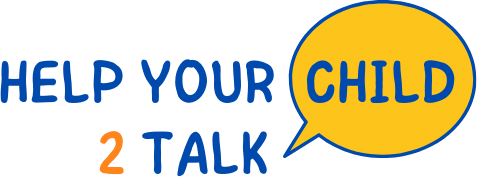Speech-language therapy addresses challenges related to speech, language, communication, voice, fluency, and feeding and swallowing. Certified and licensed speech-language pathologists (SLPs) evaluate, diagnose, and treat these concerns. They also support, educate, and collaborate with parents and other related professionals. In this article, we will share where to find speech-language therapy services for your child in the United States.
Navigating the Various Speech-Language Therapy Services

Early Intervention Services
- What is Early Intervention: Services for infants and toddlers (under 3 years old) displaying or at risk for speech, language, feeding or other developmental delay or disorder.
- How to find: Consult your pediatrician or contact your local Early Intervention office. Each U.S. state offers these services under the IDEA act.
Private Speech-Language Therapy
- What it is: Direct, tailored speech-language therapy services provided in the therapist’s office or the child’s natural setting (home or childcare facility).
- How to find: Recommendations from pediatricians, your healthcare insurance, the American Speech-Language-Hearing Association (ASHA) directory, or personal referral.

Clinic-Based Services
- What it is: Therapy in a clinical setting, sometimes involving a multidisciplinary team.
- How to find: These services are offered in local hospitals, speech clinics, or universities with a communication sciences department.
Resource: ASHA ProFind Clinic Locator
School-Based Services
- What it is: Services provided within the public-school educational system to aid children whose speech-language challenges impact their learning. Some private schools also offer these services. If your child’s private school does not, your local public school may provide therapy services for your child as a non-attending student.
- How to find: Approach your child’s teacher, school counselor, or the school district’s special education department.
Resource: U.S. Department of Education’s Guide on Special Education
Funding for Speech-Language Therapy Services
Speech-language therapy can be covered through a variety of means. Here a few common funding sources:
- Health Insurance: Many health insurance policies cover speech-language therapy, though coverage levels may vary. Always check with your provider first.
- Medicaid: Medicaid may cover speech-language therapy for eligible children.
- Schools: Public schools in the U.S. are mandated to provide necessary speech-language services at no cost to families under the IDEA act.
- Grants and Scholarships: Some organizations and foundations offer grants or scholarships for speech-language therapy.
- Sliding Scale Fees: Some private therapists and clinics offer services on a sliding fee scale based on income.
Comparing the Different Services
| Feature | Early Intervention | Private Services | Clinic-Based Services | School-Based Services |
|---|---|---|---|---|
| Age Group | 0-3 years | All ages | All ages | School-age 3-21 years old |
| Location | Home/Community | Various | Clinic | School |
| Funding Sources | State-funded | Out-of-pocket, Insurance | Out-of-pocket, Insurance | Federally funded |
| Multidisciplinary Team Access | Often | Rarely | Common | If appropriate |
| Individualized Service | Yes | Yes | Yes | Yes |
FAQs
- How do I find a qualified speech-language pathologist for my child?
- Consult your pediatrician for referrals and use the ASHA’s online directory. If your child is under the age of 36-month-old, contact your local Early Intervention program.
- Are speech-language pathology services available in schools?
- Yes, public schools provide these services for eligible students as part of special education services.
- What should I look for when choosing a speech-language pathologist for my child?
- Look for pediatric specialization, relevant experience, and positive rapport building.
- What can I expect during the initial speech-language evaluation?
- The evaluation includes comprehensive assessments of speech, language, and communication skills. If feeding is a concern, it will also be evaluated.
Summary/Conclusion
Early identification and action are pivotal for children facing speech and language challenges. With diverse options from early intervention to school-based services, resources abound to support your child’s communication journey.
Resource: ASHA’s Guide for Parents – A comprehensive resource offering advice and information for those exploring speech-language therapy services.




0 Comments